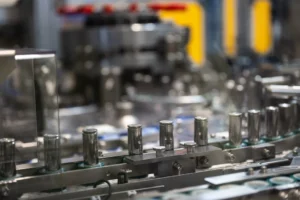By introducing labor-saving production lines, the Kansas Factory is expected to achieve approximately 20 percent higher productivity compared to the Nevada Factory. In the near future, Panasonic Energy plans to introduce products using advanced materials that will increase cell capacity by around five percent. This also represents a significant step forward in Panasonic Energy’s efforts to strengthen the domestic supply chain for electric vehicles, thereby enhancing the company’s competitiveness in North American battery manufacturing and commitment to sustainability.
As the largest economic development project in Kansas state history, the factory is expected to create up to 4,000 direct jobs and approximately 8,000 jobs in total, including those in supplier and related industries. Panasonic Energy is also collaborating with institutions such as the University of Kansas to promote long-term industry-academia partnerships focused on technological advancement and specialized talent development, contributing not only to the economic growth of De Soto and the surrounding Kansas region, but also to the revitalization of the U.S. manufacturing sector, the cultivation of a skilled workforce, and the long-term strength of the economy.
Kazuo Tadanobu, CEO of Panasonic Energy stated, “The opening of our Kansas Factory marks a major milestone in our journey to scale advanced battery production in the United States. This achievement would not have been possible without the strong support of our local partners and the State of Kansas. Together, we are accelerating the shift to electrification, reinforcing regional supply chains, and nurturing the next generation of battery talent. This facility represents not only our commitment to the region but also a foundation for long-term collaboration and innovation in the U.S.”
